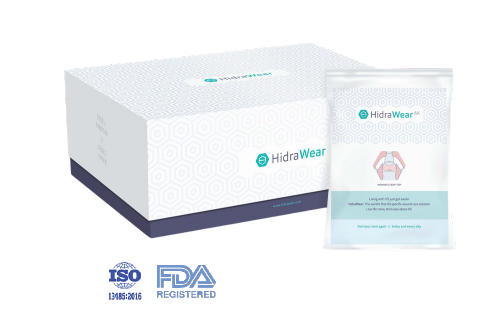ALSO AVAILABLE THROUGH INSURANCE
About Hidradenitis Suppurativa
It can take years to receive a correct diagnosis of hidradenitis suppurativa.
Because it is so hard to spot, it is sometimes helpful to go back to basics.
Here, we are going to talk about the basic questions people have starting their HS journey.
What is HS?
Hidradenitis Suppurativa is a chronic, inflammatory skin disease that causes recurrent and painful nodules, boils, abscesses and lesions of the skin.
Watch the video to learn more about HS including:
– The common areas affected
– The 3 stages of HS
– How to manage your symptoms

Self-pay or Insurance- you decide!
As well as our self-pay shop, HidraWear is now also widely available through a broad range of Insurance providers including Medicare and Medicaid. It can be prescribed by your provider, billed directly to your insurer and delivered right to your door.

